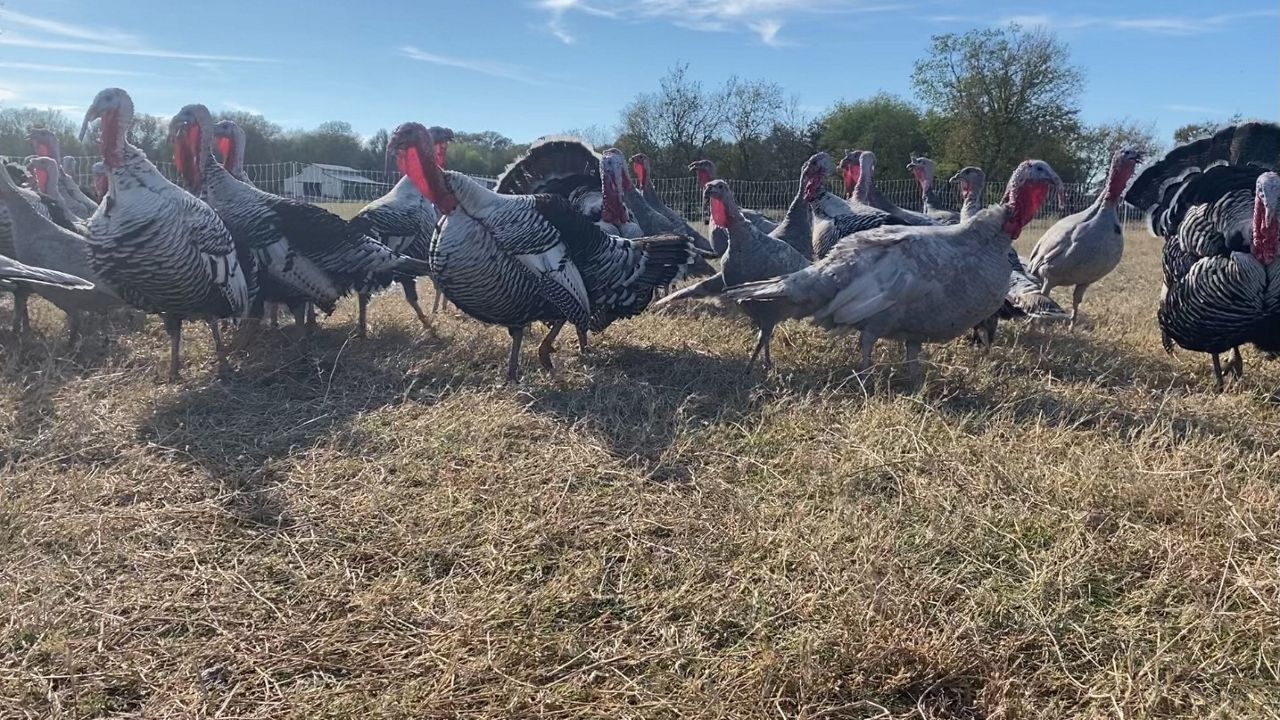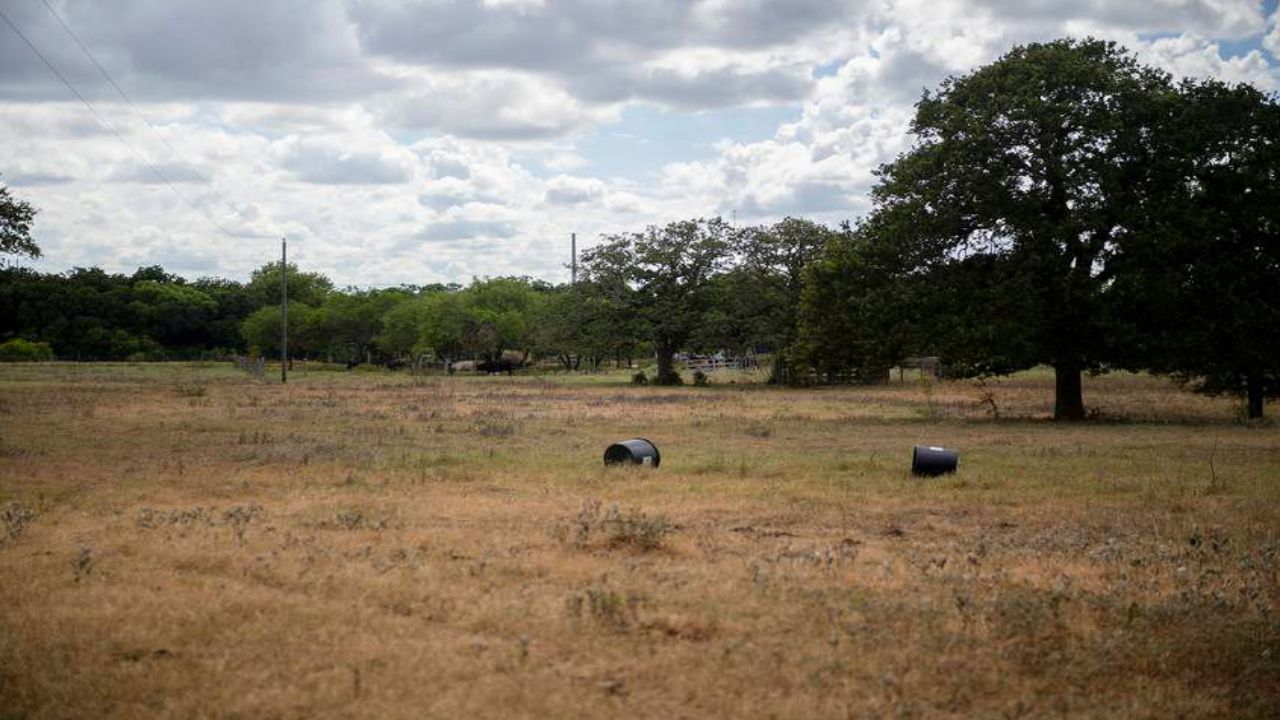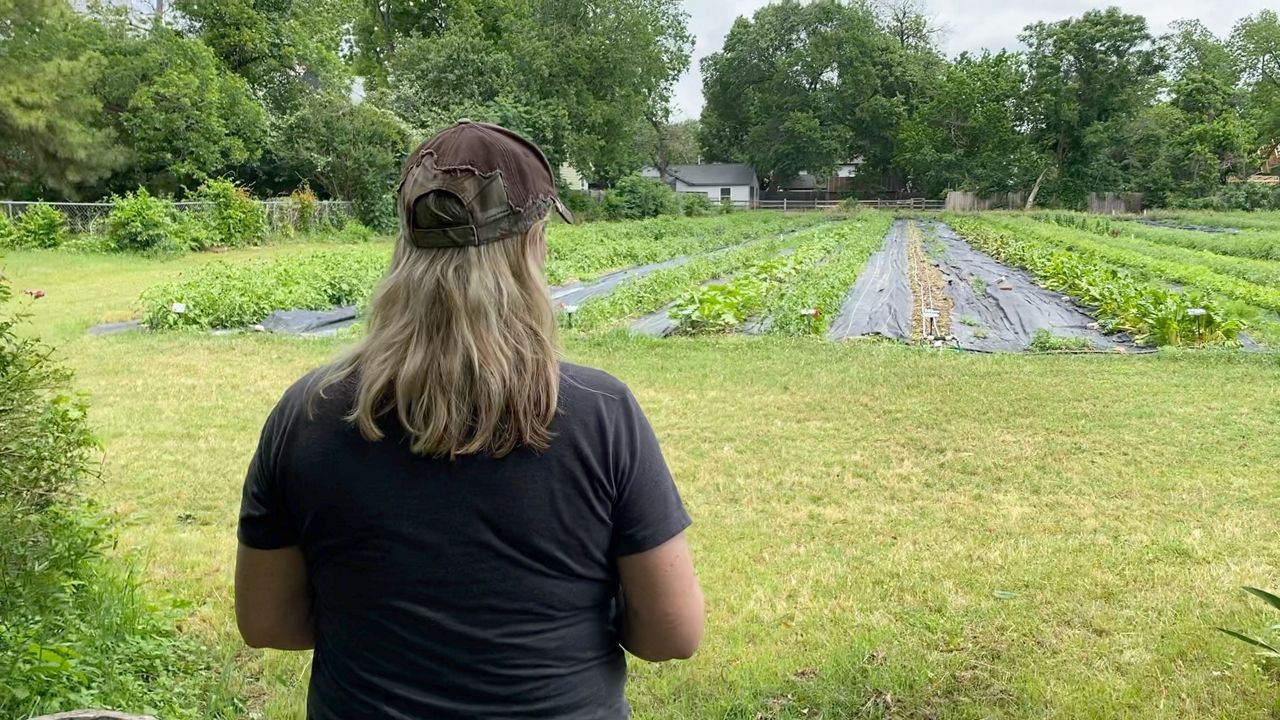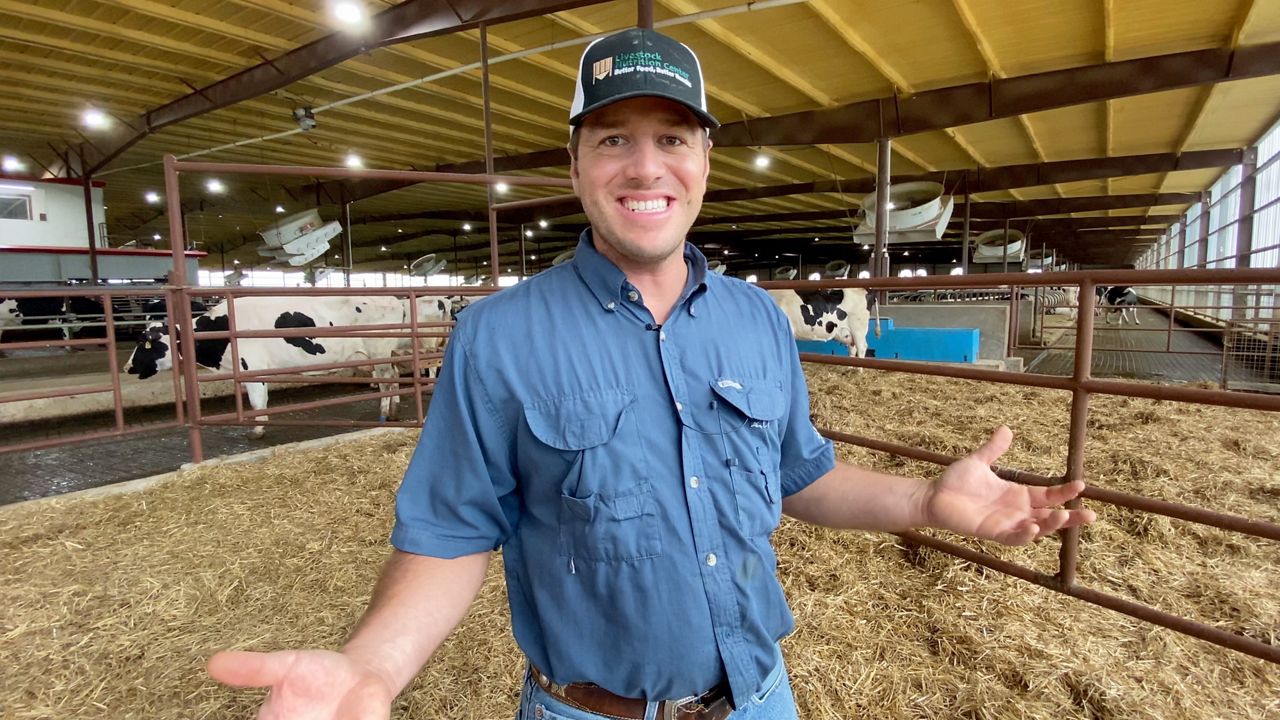TEXAS — According to the USDA, more than 46 million turkeys are eaten every year for Thanksgiving. On average, nine in 10 Americans feast on the main course staple for the holiday.
However, some people may be paying higher prices for the bird this year due to supply chain issues. It's estimated there's a 24% decrease in the amount of frozen turkeys readily available for consumers.
A North Texas farmer is working outside of the supply chain issues to deliver his turkeys from farm to table. For the last 28 weeks, Stout Creek farmer and rancher Brent Barry has been serenading his Slate and Narragansett turkeys as they grow on his 600-acre range in Saltillo, Texas.
"They're not a part of the industrial age at all, they've been there," said Barry. "This is what you would have on your great-great-great-grandmother's farm."
About three years ago the farmer began raising the turkeys after noticing a rapid decline in their population.

Slate and Narragansett turkeys are species that once thrived amongst early settlers of America, but dwindled down to less than 10 available for breeding in 1997, according to the Livestock Conservancy.
"There's talk about the early days of when the United States was started the Narragansett were around as some of the first turkeys," said Barry. "They're endangered, but the more people that want them for their Thanksgiving meal, the more farmers will grow this breed. The breed will flourish and be renewed."
Since 2018, Barry has be able to more than quadruple the size of his initial flock given his sustainable livestock rotation process. Cows, goats, chickens and turkeys all take turns grazing around areas of land in order to replenish nutrients, and give time for grass regrowth.
"The turkeys are also going to give you fertilizer, and they are going to graze the ground a little bit," said Barry. "Instead of using a lot of machinery, we use animals to take care of the land."
The farmer is raising 125 heritage turkeys this year for Thanksgiving. Next year, he hopes to double the amount of turkeys again in order to bring back prominent breeds of turkeys that nearly went extinct.
"Gratefulness is the very best emotion because it's not centered on myself, it's centered onto others," said Barry. "To have our Thanksgiving turkey to be the center of that is just a joy. We love raising these animals."
Once turkeys are processed, Barry hand delivers the majority of his supply and ships off the rest just in time for the big feast.










